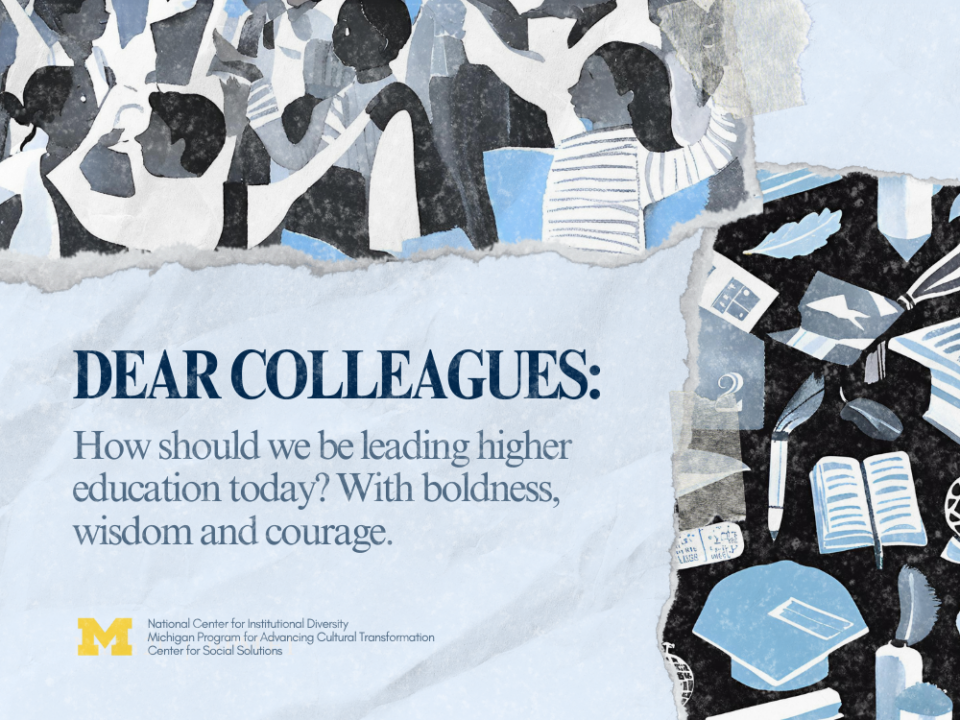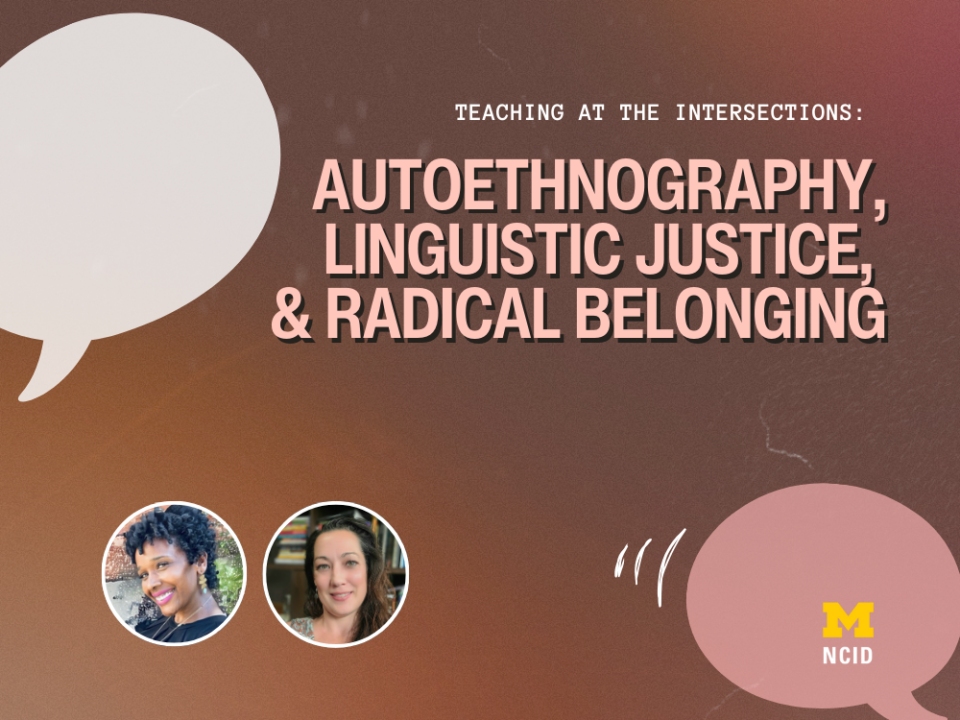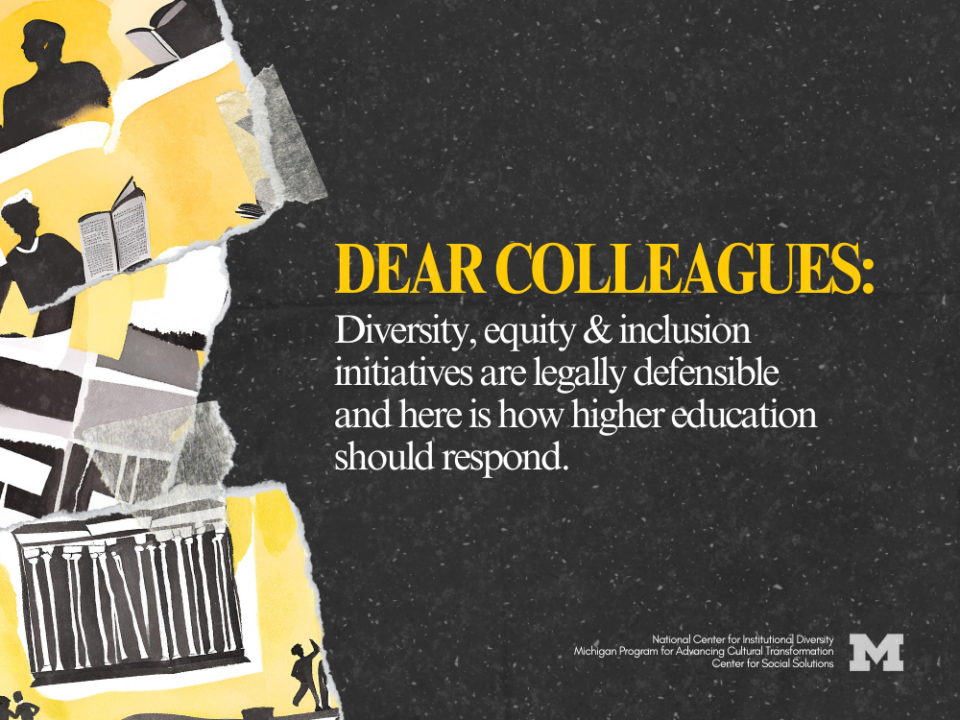- About
- News
- Events
- Initiatives
- Anti-Racism Collaborative
- Change Agents Shaping Campus Diversity and Equity (CASCaDE)
- Diversity Scholars Network
- Inclusive History Project
- James S. Jackson Distinguished Career Award for Diversity Scholarship
- LSA Collegiate Fellowship Program
- University Diversity & Social Transformation Professorship
- Publications & Resources
- About
- News
- Events
- Initiatives
- Anti-Racism Collaborative
- Change Agents Shaping Campus Diversity and Equity (CASCaDE)
- Diversity Scholars Network
- Inclusive History Project
- James S. Jackson Distinguished Career Award for Diversity Scholarship
- LSA Collegiate Fellowship Program
- University Diversity & Social Transformation Professorship
- Publications & Resources
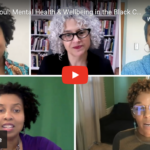
Mind and Soul: Mental Health & Wellbeing in the Black Community
October 20, 2022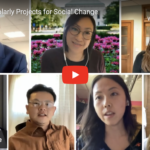
Digital Scholarly Projects for Social Change
November 1, 2022Sponsors
- National Center for Institutional Diversity
- Anti-Racism Collaborative
- Poverty Solutions
- Department of American Culture
- Latina/o Studies Program
- Carceral State Project
Universities have a long and storied history of collaboration with community organizations and organizers. Yet these collaborations are not without their challenges, as wealthy, predominantly white universities must address issues of power, privilege, and competing priorities for these collaborations to succeed. While decades of research and experience have illustrated some best practices in academic-community collaborations, the COVID-19 pandemic, increasing politicalization of research, growing public support of advocacy movements like Black Lives Matter, and the increasing reliance on social media have forced community organizers to engage in new and creative efforts to support their communities. How can universities best evolve to collaborate with and support community organizations amid these new challenges?
On October 27, join Dr. William Lopez for a discussion with Gladys Godinez, Cecia Alvarado, and Karina Perez, three Latina organizers and creatives with decades of experience advocating with and for Latino communities. Together, they will share their experiences on academic collaborations, describing what they’ve done, when it’s worked well, when it’s gone wrong, and what academics can do to best support the communities with whom they collaborate.
Moderator
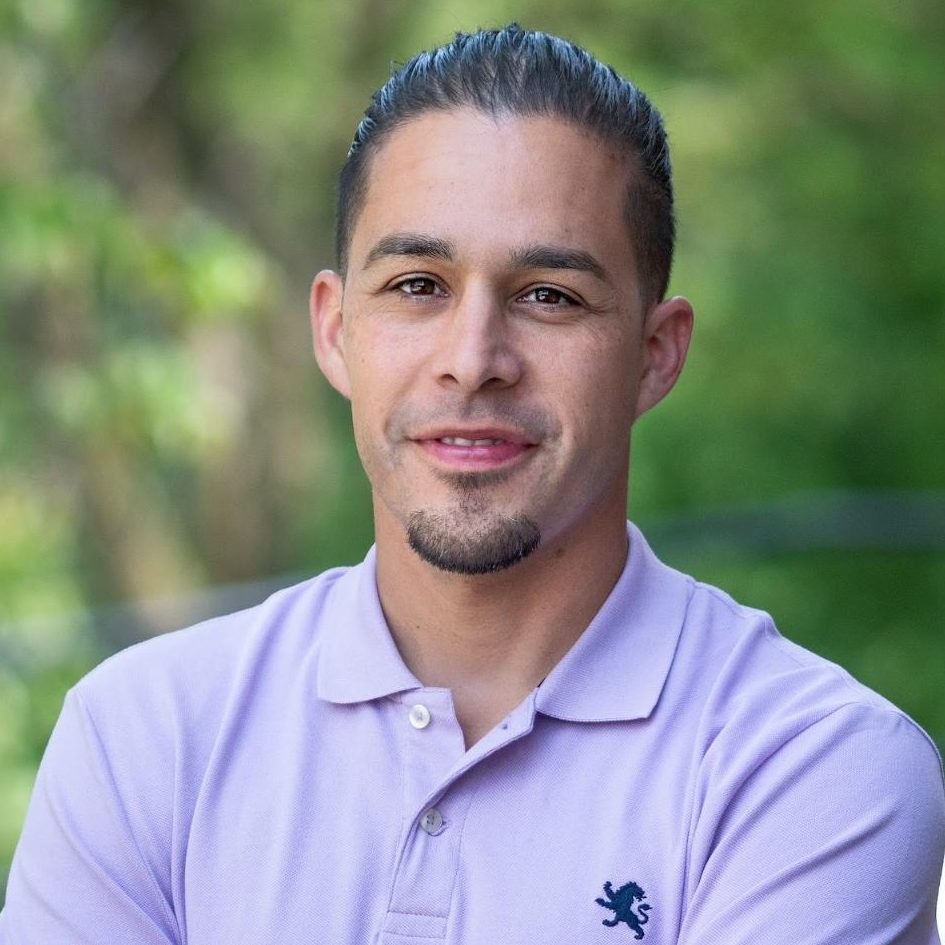
William D. Lopez
William D. Lopez is a clinical assistant professor at the University of Michigan School of Public Health and senior advisor at Poverty Solutions. He teaches classes on the social determinants of health, health communication, and the impacts of immigration and police violence on communities of color. The son of a Mexican immigrant mother and Texan father, he grew up in San Antonio, TX, before attending the University of Notre Dame and receiving his PhD in public health from the University of Michigan. He lives in Ann Arbor with his partner, two kids, and #pandemicpup. Follow him on Twitter at @lopez_wd.
Panelists

Gladys Godinez
Gladys Godinez was born in Guatemala and made her way to Lexington, NE by way of Inglewood, CA. She has been an activist and organizer since she was 15, when she co-founded a high school group named ‘Nuestro Futuro’ to change the narrative of what it means to be Latino in the rural US. A leader in her community, Gladys has organized with a range of organizations, all of which aim to support the working-class Latino community in the midwest. One such organization is Solidarity with Packing Plant Workers, a statewide grassroots group that shines light on the injustices within meatpacking plants. Gladys is the co-founder and co-director of United by Culture Media, a nonprofit media organization focused on creating a safe and authentic space where the diverse rural story exists. Gladys also is the host of the podcast Courageous Mujer, where she aims to "embrace, uplift, and celebrate Latinas in Nebraska." Follow her on Instagram at @courageousmujer, on Twitter @courageousmujer, and listen to her Courageous Mujer podcast.
Cecia Alvarado
Cecia Alvarado was born in Costa Rica and moved to the United States when she was 16. Currently living in Nevada, she is the executive director of Somos Votantes, a Latina-founded and Latino-led organization dedicated to empowering our Latino community with the information and tools they need to fully participate in our democracy. A graduate of Nevada State College, Cecia received her BS in communications and a minor in gender and sexuality studies. Cecia is the founder of her own consulting company, Latino Outreach Solutions, LLC, that supports the inclusion of Latino communities in political campaigns and messaging. Despite all her professional engagements, Cecia continues to volunteer in her community, and recently volunteered on the COVID-19 Task Force by the Nevada Legislative Hispanic Caucus and serves in a number of committees focused on research to improve public health in Nevada. Follow Cecia on Twitter at @ceciaalvaradoNV.

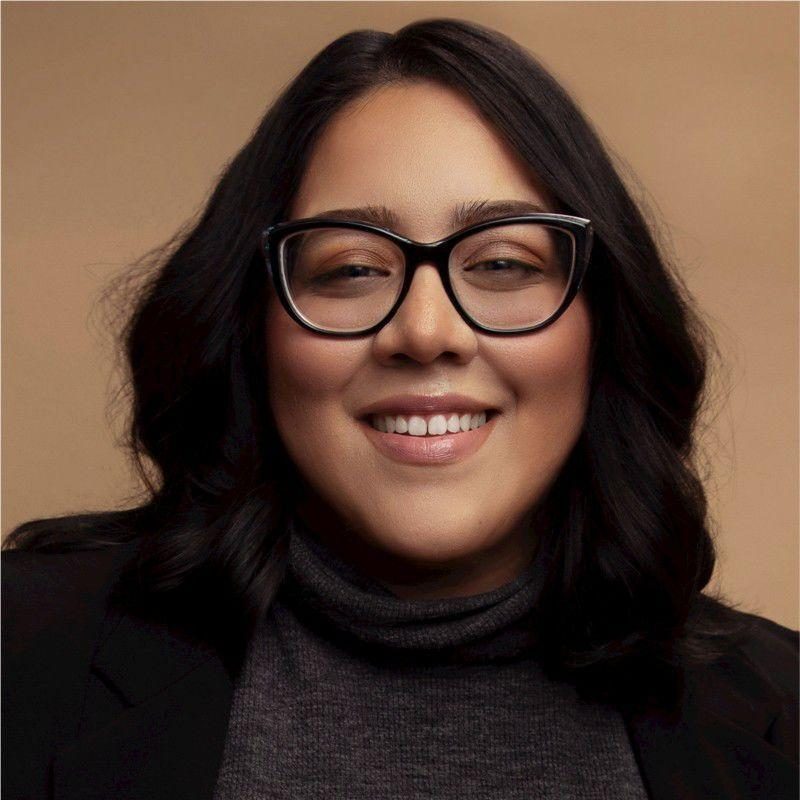
Karina Perez
Karina Perez is the daughter of Salvadoran parents and currently lives in Columbus, NE by way of California. Karina is the executive director of Centro Hispano Comunitario de Nebraska, which fosters change for immigrant families, learners, and entrepreneurs through direct services, programming, and advocacy. Follow the work of her organization on Facebook, Instagram, and Twitter at @centrohispanone.


